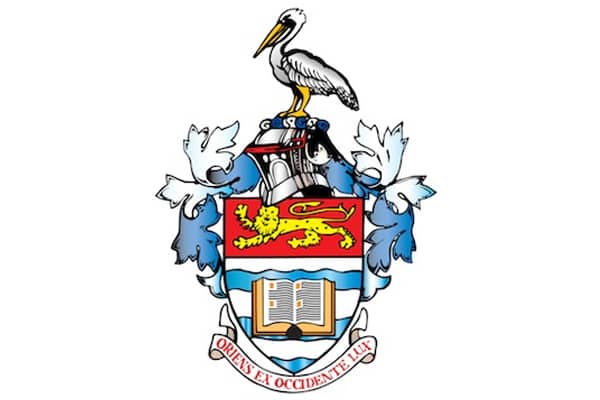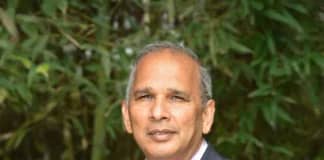
2023—A team of scientists
from The University of the West Indies (The UWI) is featured in the PLOS Global Public Health Journal for its work on genomic surveillance research in the Caribbean.
The journal article, published in February 2023, details how the team’s work propelled the
Caribbean out of the pathogen genomic surveillance starting blocks and thus facilitated better understanding and control of SARS-CoV-2 in the region.
Dr. Nikita Sahadeo, a post-doctoral researcher in Faculty of Medical Sciences at The UWI, St. Augustine Campus is the first author on the publication, which describes the implementation of rapid whole genome sequencing (WGS) at The UWI to monitor the rapid evolution of SARS-CoV-2 in the Caribbean and the resulting emergence of new, easily spread variants.
The article also presents the successes and challenges encountered by The UWI researchers and their regional and international counterparts, as well as the lessons learned. It also makes recommendations for sustainable genomic surveillance in resource-limited settings.
The project, led by Professor Christine Carrington, Professor of Molecular Genetics and Virology in the Faculty of Medical Sciences at The UWI, St. Augustine Campus had the initial aim of establishing capacity for rapid SARS-CoV-2 WGS in Trinidad and Tobago (T&T) in order to generate baseline information on the virus’ diversity in the Caribbean, and so that viral genomics and related molecular epidemiological approaches could be incorporated into the mitigation and control efforts of the Trinidad and Tobago Ministry of Health and member states of the Caribbean Public Health
Agency (CARPHA).
In addition to Professor Carrington, key UWI researchers included Mr. Vernie Ramkissoon, Ms. Anushka Ramjag, Mr. Soren Nichols, Dr. Arianne Brown-Jordan and Mr. Nicholas Mohammed. The collaborating institutions on the initiative were the Trinidad and Tobago Ministry of Health, CARPHA, Chief Medical Officers of CARPHA member states, and collaborators from Imperial College London, the Universities of London, Oxford and Edinburgh.
The initial plan was to analyze 800 samples within a two-year timeframe, but the emergence of the first variant of concern (VOC) in December 2020 and ensuing necessity for routine VOC surveillance, (two weeks after the researchers successfully generated their first complete SARS- CoV-2 genome sequences), forced the team to pivot from their initial research focus to providing essential sequencing capacity for Trinidad and Tobago and the 16 other CARPHA member states.
This was achieved with support from the Pan-American Health Organisation (PAHO), UWI-T&T Research and Development (RDI) Fund, AHF Global Public Health Initiative, Trinidad and Tobago Ministry of Health and the UK Health Security Agency (UKHSA) that facilitated acquisition of more powerful sequencing devices, other necessary equipment, reagents and expanded human capacity in the lab.
The PLOS journal article highlights that the “effectiveness of this initiative was demonstrated by the rapid detection and reporting of VOCs in several CMS, which informed public health policy and decision-making for economic reopening, international travel restrictions and work policies.”
CARPHA established its own in-house capacity in December 2021, and while The UWI laboratory (which now serves as a WHO/PAHO reference sequencing laboratory) continues to carry out WGS for the Trinidad and Tobago Ministry of Health and is available to provide surge capacity, the team has otherwise returned to its research focus, working to expand genomic surveillance to other pathogens and supporting UWI researchers in other areas to incorporate WGS and related bioinformatics techniques into their research.
As the work continues, Professor Christine Carrington notes, “We really need more space now, our current lab is not really fit for purpose. We need a dedicated, purpose-build or refurbished space for the capacity we have built. Visitors to our lab have told us that our output is that of a world class laboratory, but now we need to look like one! COVID-19 is not the first and won’t be the last disease of public health significance to emerge, as an academic institution we need our research and training capacity in this area to be enhanced so we can better support our public health colleagues and our region for when the next health threat comes”.
Professor Carrington serves as a member of The UWI COVID-19 Taskforce, which was established in 2020 to leverage the University's knowledge and experts to assist the Caribbean in its readiness and response to the virus outbreak.
The PLOS journal article titled, Implementation of genomic surveillance of SARS-CoV-2 in the Caribbean: Lessons learned for sustainability in resource-limited settings can be accessed at https://dx.plos.org/10.1371/journal.pgph.0001455
Advertise with the mоѕt vіѕіtеd nеwѕ ѕіtе іn Antigua!
We offer fully customizable and flexible digital marketing packages.
Contact us at [email protected]
















